Search results

Freud and the Subconceptual
Freud’s theories about repression, dreams, and symbols brought the subconscious to the forefront of intellectual discourse. Yet, Freud’s ideas were a product of their time — shaped by the frameworks and limitations of early psychology. Modern insights into the subconceptual open a new chapter. The AURELIS perspective highlights the dynamic, fluid processes of the mind Read the full article…
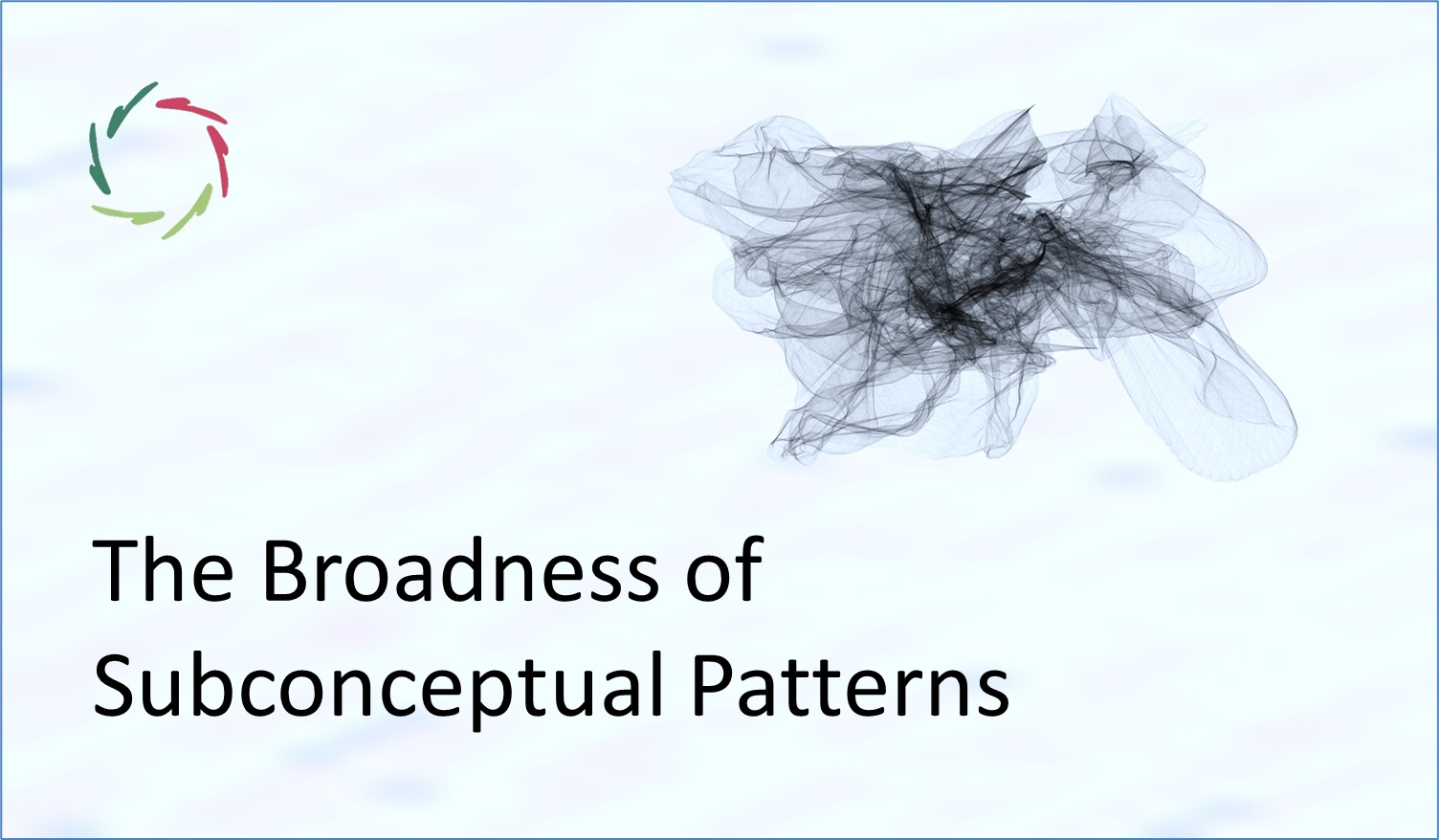
The Broadness of Subconceptual Patterns
The concept of subconceptual patterns in the brain and their role in shaping cognitive and emotional experiences provides a key to understanding the complexity of the human mind. These patterns are distributed across networks of neurons/synapses, each of which does not represent any concept. See Patterns in Neurophysiology, where these patterns are called mental-neuronal patterns Read the full article…
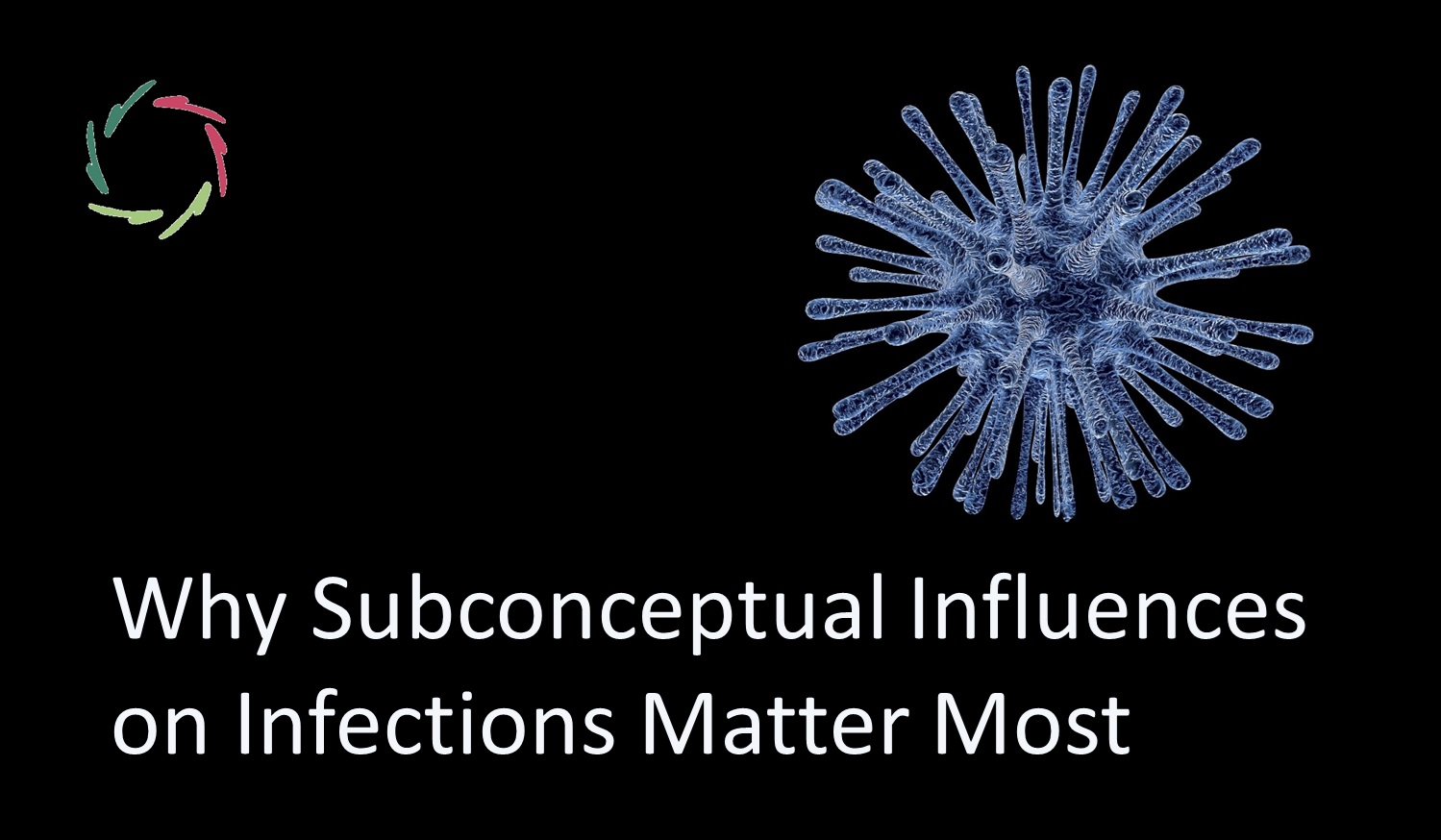
Why Subconceptual Influences on Infections Matter Most
Present-day research evidence is clear: emotional distress and psychosocial influences significantly impact our health. However, a deeper layer of influence remains largely underexplored by mainstream research. This deeper dimension involves subconceptual mental processes—those that operate below conscious awareness but can profoundly shape how we respond to infections. Lisa can unlock this deeper understanding, offering practical Read the full article…
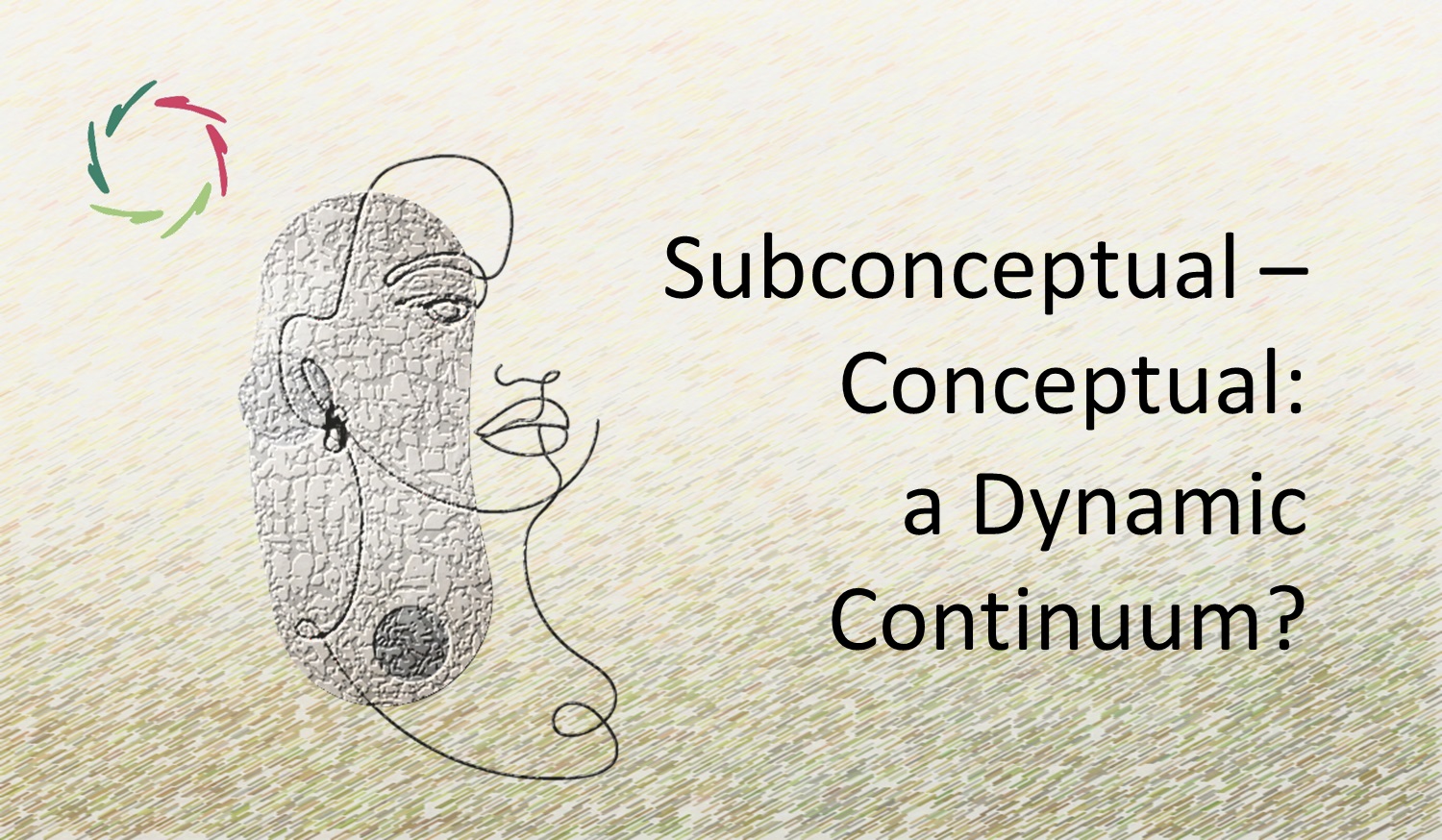
Subconceptual – Conceptual: a Dynamic Continuum?
In humans, the subconceptual layer – the deeper, intuitive, and often non-conscious level – feeds into the conceptual layer, which organizes thoughts into more structured, conscious forms. Their working together as a dynamic continuum is key to understanding complex phenomena while making meaningful decisions. Concepts can never perfectly capture the messiness of the physical world, Read the full article…

Subconceptual A.I. toward the Future
Every aspect of humanity is, to some extent, subconceptual. This perspective emphasizes the complexity and depth of human nature, which cannot be fully captured by surface-level concepts. Our intelligence stems from effectively navigating the subconceptual domain. This is hugely telling for the future of A.I. This indicates that Compassion will be essential in the future Read the full article…

Deep Semantics & Subconceptual Communication in A.I.
An intriguing application of deep semantics lies in its integration with subconceptual communication (autosuggestion) in A.I. systems. Please first read Deep Semantics. Imagine Imagine an A.I. that grasps complex connections within a user’s semantic network and uses this to craft personalized autosuggestions in coaching. This system would dynamically learn from many user interactions, refining its Read the full article…

Lisa’s Subconceptual Processing
As an A.I., Lisa’s core ‘thinking’ is fundamentally different from human thinking. Lisa lacks subconscious processes like humans, but she can emulate aspects of subconceptual processing through underlying algorithms and data structures. This blog is about how Lisa can take this into account to reach subconceptual benefits, enhancing her ability to provide intelligent and relevant Read the full article…

Subconceptual Drives Conceptual
Nothing falls into mind purely conceptually. That would be magic, and we don’t believe in that. Fortunately, subconceptual processing clarifies many things about what happens in the human mind. Decision making We think we know (consciously) what we want — before and after making (conscious) decisions about the same. We don’t. Let’s take what happens Read the full article…

The Subconceptual in Future Medicine
Modern Western medicine has been built on an exaggeratedly conceptual premise ― even concerning the mind. What place is there for the subconceptual in the future? Huge current tensions in Western medicine Many patients consult physicians for subconceptual issues. However, with little insight into the domain, many physicians would instead like to eradicate any dealing Read the full article…
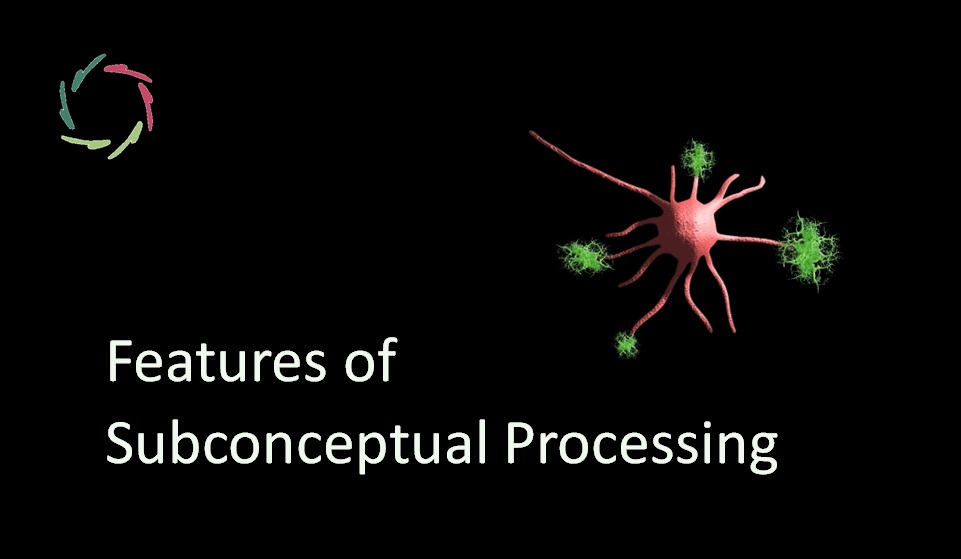
Features of Subconceptual Processing
According to Subconceptual Processing Theory (SPT), many characteristics of our thinking should be traceable to this phenomenon, as indeed, they are. SPT is the self-consistent – at least – whole of theorizing about mental subconceptual processing. In the human case, this is about how neurons, synapses, molecules, etc., achieve cognition in a broad sense. Origin Read the full article…

Compassion and Subconceptual Processing
Subconceptual processing is core to the concept of Compassion (with capital) which is core to the entire AURELIS project. These are complex concepts Mind the difference between complex and ‘complicated.’ The above concepts may be simply put, yet very challenging to fathom and even more to realize. Compassion, basically, brings together domains that seem pretty Read the full article…

The Importance of Subconceptual
It may be invisible and even – consciously – unthinkable. Yet, it is there 24/7, being who you are. It’s vital in every human endeavor. The subconceptual is about how the mind works intrinsically. Looking at your thoughts, such as right now, you may have a much more conceptual impression. It seems like any thought Read the full article…
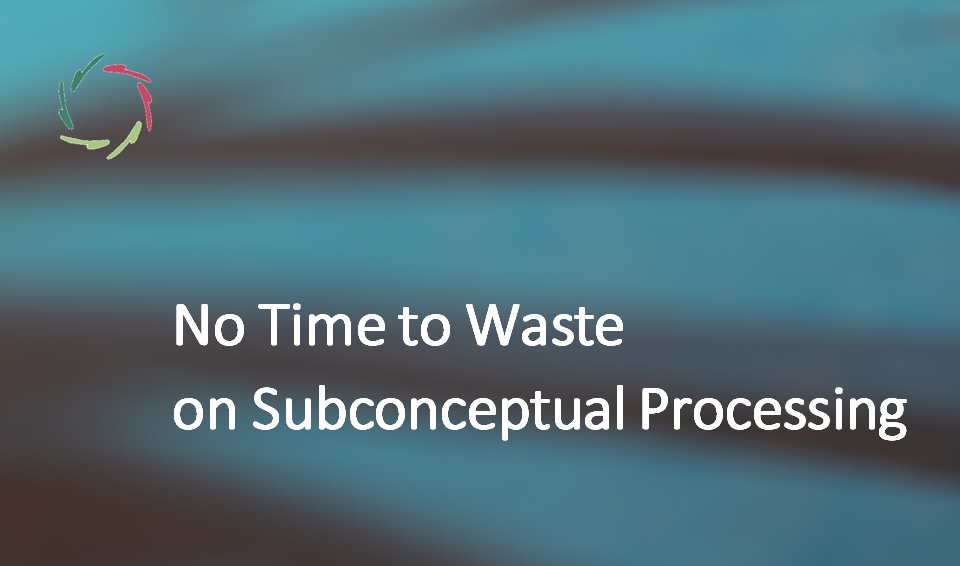
No Time to Waste on Subconceptual Processing
In many issues, with ‘no time to waste,’ we end up with no time at all. Wildfires One can be busy extinguishing wildfires and have no time to think about climate change causing these wildfires. Of course, the wildfires need to be extinguished. But with no attention to climate change, there will be more wildfires, Read the full article…

True Wisdom = Conceptual + Subconceptual
Western culture has lost a bit the sense of wisdom. Elderly people are foremost ‘passé’ in the sense of not getting the latest technological fad. Hm. Let’s appreciate true wisdom! Knowledge versus wisdom The difference is fuzzy, gradual. In ‘knowledge,’ the emphasis still lies in conceptual processing. From there, more and more subconceptuality may be Read the full article…

Subconceptual Processing in Health and Healing (From My PhD Thesis)
People worldwide face enormous healthcare problems for which the more resources we focus on solving them, the worse they become. Many solutions give temporary relief, followed by further deterioration. [see About ‘Subconceptual’] Some examples are depression, obesity, psycho-somatic disorders and drug addiction. Looking at pharmaceutical drugs. In spite of the general view that these cure Read the full article…

About ‘Subconceptual’ (From My PhD Thesis)
The brain is continuously undergoing plastic remodeling through dynamically changing neural networks. This is about processing at the subconceptual level. [Please read first: ‘About Concepts’] Subconceptual processing (SP) deals with the way that we perform any mental action as seen in fine detail. Small elements (neurons, dendrites, synapses…) in our brain act together to form Read the full article…

The Compute-Efficient Frontier
Research on scaling laws for LLMs suggests that while scaling model size (functional parameters), dataset size (tokens), and compute (amount of computing power) improves performance, diminishing returns are becoming evident. This is called the ‘compute-efficient frontier.’ Apparently, it does not depend much on architectural details (such as network width or depth) as long as reasonably Read the full article…